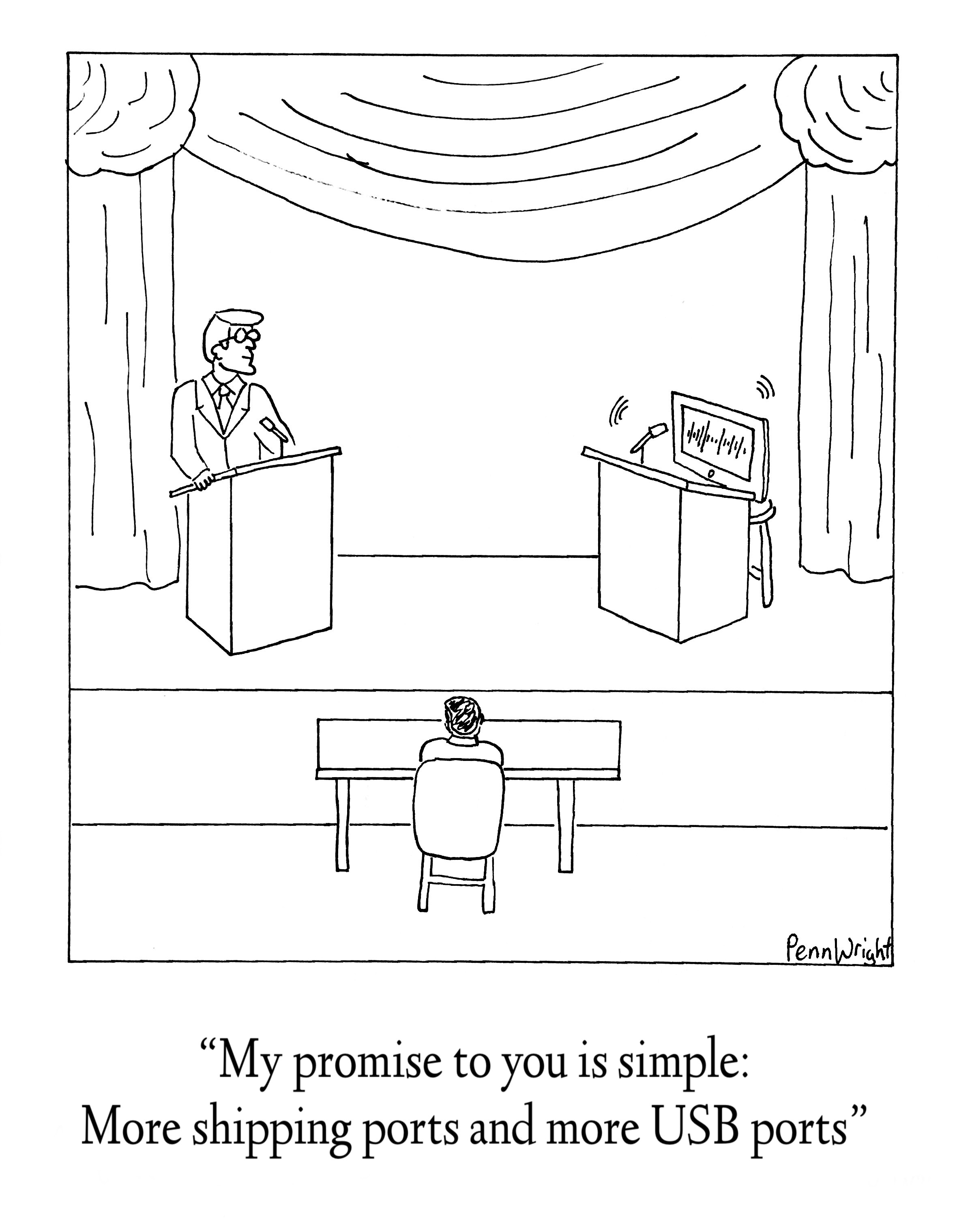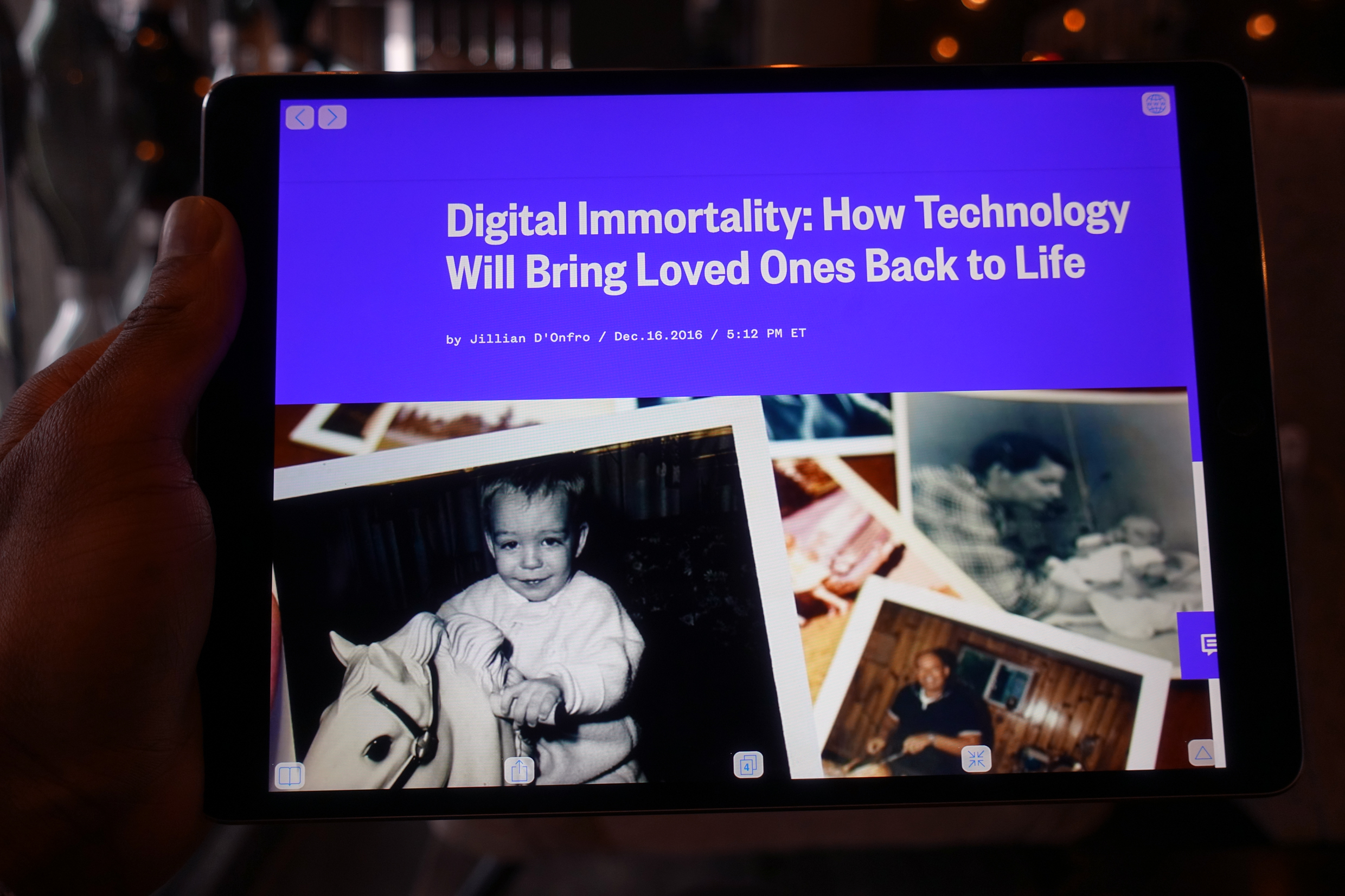Would you elect a machine into office? It’s probably a question you’d never think to ask yourself. But, it may be near. According to the Pew Research Center, the general trust in government here in the US has been on a steady decline from 70% in the 1950s to 20% today – a momentum regardless of the party in office.
Now, there’s a variety of factors that caused this distrust. And this isn’t an article about those factors. Rather, it’s a response.
With widespread distrust in the operation of government, people are going to be open to a big political change. Perhaps even a revolutionary moment in politics worldwide. It could be someone like Andrew Yang, a politician with a fresh perspective and futuristic vision. Or it could be technologically assisted – like an AI Politician.
World’s First AI Candidate
In Tama City, Japan, Michito Matsuda ran for the mayoral election with an interesting twist: his decision-making would be deferred to artificial intelligence. Matsuda was proud to announce the world’s first AI Candidate which would bring competence, impartiality, and balance back to politics. The AI Candidate garnered over 4,000 votes, which was just enough for a bronze medal.
Nonetheless, let’s take a look at the pillars he posed.
Competence? Yes, please. An AI Politician would have the power to call upon countless sources of data and truth in the form of surveys, governmental meetings, laws and regulations, and voter feedback all in the matter of moments.
Impartiality? This one is a little more tricky considering that everyone has biases, even the researchers that would develop an AI Politician. We’ve seen partial AI systems in the past. The risk-assessment algorithms courts use to assist in sentencing have been found to support racism. And the image recognition algorithms on Facebook and Google reinforce sexist gender stereotypes. Therefore, there’s a great challenge ahead for an unbiased AI Politician.
And how about balance? Is that even possible in politics? If it is, do we want balance? This is an AI Politician’s greatest test, I believe.
In the bipartisan politics of the United States, would an AI Politician take into account both sides of an argument when making a decision? Or would it operate with a programmed, fixed viewpoint?
Downfall of an AI Politician
Part of what makes politics effective is that compromise is often avoided and you get strong viewpoints battling it out until one side wins.
Compromise may sound nice when sharing sandwiches, but when it comes to important negotiations, compromise is actually a failure among all participants.
Take this classic negotiation fable:
“Two sisters each want a full orange but they have just one orange between them, with nothing of value to trade. In the end, they compromise. Each takes half the orange and goes on her way. One sister happily ate her fruit, throwing away the peel. The other peeled her half, throwing away the fruit and using the peel to garnish a dish. The compromise in this story was completely unnecessary. Each sister could have had the full value of the orange if they had identified each other’s true interests.”
Yes, this is a fable. But, it shows that compromise may cause us to overlook options that we are neglecting to find.
Even FBI negotiators avoid compromise at all costs. They abide by a cooperative, rapport-building, empathetic approach. The kind that creates a dynamic in which deals can be made. This usually means digging deeper into people’s true intentions.
It’s idealistic to think that an AI Politician could take into account the viewpoints of thousands or millions and find a way to satisfy everyone. It’s a difficult concept to even wrap your mind around because it’s probably impossible.
With this knock against an AI Candidate, is there any place in politics for AI?
AI in Politics
Although we may not be ready for an AI Candidate, I do believe the next logical step is electing politicians that understand artificial intelligence and also are open to bringing it into action in a variety of ways. Thus, executing their job to a higher degree with a level of automation.
For example, Andrew Yang announced his running for the 2020 US Presidential Election. With a background as a tech executive, he accepts the impact that AI is going to have on our jobs and society as a whole.
Yang, among other tech-literate candidates, would bring a lot of fresh ideas to the table. For one, he’s proposed to establish a Department of the Attention Economy in order to regulate social media companies like Facebook and Twitter. He also proposes appointing a cabinet-level secretary of technology, based in Silicon Valley, to study the effects of emerging technologies.
It wouldn’t surprise me if Yang used AI in budget formation, culling some of the waste. Also, adopt AI tools such as SAM — a chatbot application that works to inform and involve voters more. SAM helps alleviate the grandiose, false promises that have created a lot of the political distrust. This shows how AI could help make politics more transparent by engaging in more active dialogue on a personal basis.
Overall, AI has a place in improving politics. At the moment, it just may not be ready to run on the ballot.
Avoid the Compromise
Let’s take a lesson from the best in the biz: FBI negotiators. Next time you find yourself in a negotiation scenario, try avoiding the compromise a little longer. Don’t instantly look for the middle-ground or split the difference.
Instead, take a new approach. Dig for other intentions or desires at play.
You might find something else to add to the negotiation. Perhaps there’s an “I’ll scratch your back, you scratch mine” deal you can make.
I know from experience how tough this is. I used to be the “middle-ground” guy. But, I soon found the power of the counter-offer. Bringing new deals into the mix that offers up additional value without sacrificing my position.
Just give it a shot! You might surprise yourself. Also, if you want inspiration, check out the movie The Negotiator starring Samuel L. Jackson and Kevin Spacey. It’s a classic.


